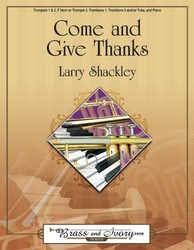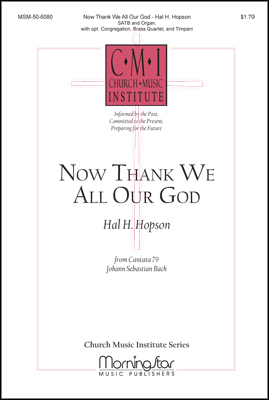- |
User Links
O Gott, du frommer Gott
Representative Text
1 O Gott, du frommer Gott,
du Brunnquell aller Gaben,
ohn den nichts ist, was ist,
von dem wir Alles haben:
gesunden Leib gieb mir
und daß in solchem Leib
ein unverletzte Seel
und rein gewissen bleib.
2 Gieb, daß ich thu mit Fleiß,
was mir zu tun gebühret,
wozu mich dein Befehl
in meinem Stande führet.
Gib, daß ich's tue bald,
zu der Zeit, da ich soll,
und wenn ich's tu, so gib,
daß es gerate wohl.
3 Hilf, daß ich rede stets,
womit ich kann bestehen,
laß kein unnützes Wort
aus meinem Munde gehen:
und wenn in meinem Amt
ich reden soll und muß,
so gib den Worten Kraft
und Nachdruck ohn Verdruß.
4 Find't sich Gefährlichkeit,
so laß mich nicht verzagen,
gib einen Heldenmuth,
das kreuz hilf selber tragen.
Gib, daß ich meinen Feind
mit Sanftmuth überwind
und, wenn ich Rats bedarf,
auch guten Rath erfind.
5 Laß mich mit jedermann
in Fried und Freundschaft leben,
soweit es christlich ist.
Willst du mir etwas geben
an Reichtum, Gut und Geld,
so gib auch dies dabei,
daß von unrechtem Gut
nichts untermenget sei.
6 Soll ich auf dieser Welt
mein Leben höher bringen,
durch manchen sauren Tritt
hindurch ins Alter dringen,
so gib Geduld; vor Sünd
und Schanden mich bewahr,
daß ich mit Ehren trag
all meine rauen Haar.
7 Laß mich an meinem End
auf Christi Tod abscheiden;
die Seele nimm zu dir
hinauf zu deinen Freuden;
dem Leib ein Räumlein gönn
bei seiner Eltern Grab,
auf daß er seine Ruh
an ihrer Seite hab.
8 Wenn du die Toten wirst
so tu auch deine Hand
zu meinem Grab ausstrecken,
laß hören deine Stimm
und meinen Lieb weck auf
und führ ihn schon verklärt
zum auserwählten Hauf.
Source: Antwort Finden in alten und neuen Liedern, in Worten zum Nachdenken und Beten: evangelisches Gesangbuch (Bayern, Mitteldeutschland, Thüringen) #495a
Author: Johann Heermann
 Johann Heermann's (b. Raudten, Silesia, Austria, 1585; d. Lissa, Posen [now Poland], 1647) own suffering and family tragedy led him to meditate on Christ's undeserved suffering. The only surviving child of a poor furrier and his wife, Heermann fulfilled his mother's vow at his birth that, if he lived, he would become a pastor. Initially a teacher, Heermann became a minister in the Lutheran Church in Koben in 1611 but had to stop preaching in 1634 due to a severe throat infection. He retired in 1638. Much of his ministry took place during the Thirty Years' War. At times he had to flee for his life and on several occasions lost all his possessions. Although Heermann wrote many of his hymns and poems during these devastating times, his persona… Go to person page >
Johann Heermann's (b. Raudten, Silesia, Austria, 1585; d. Lissa, Posen [now Poland], 1647) own suffering and family tragedy led him to meditate on Christ's undeserved suffering. The only surviving child of a poor furrier and his wife, Heermann fulfilled his mother's vow at his birth that, if he lived, he would become a pastor. Initially a teacher, Heermann became a minister in the Lutheran Church in Koben in 1611 but had to stop preaching in 1634 due to a severe throat infection. He retired in 1638. Much of his ministry took place during the Thirty Years' War. At times he had to flee for his life and on several occasions lost all his possessions. Although Heermann wrote many of his hymns and poems during these devastating times, his persona… Go to person page >Text Information
| First Line: | O Gott, du frommer Gott |
| Author: | Johann Heermann |
| Place of Origin: | Germany |
| Language: | German |
| Notes: | Polish translation: See "O Panie, Boże mój" by Ludwik Jenike |
| Copyright: | Public Domain |
English
French
German
- Antwort Finden in alten und neuen Liedern, in Worten zum Nachdenken und Beten: evangelisches Gesangbuch (Bayern, Mitteldeutschland, Thüringen) #495b
- Antwort Finden in alten und neuen Liedern, in Worten zum Nachdenken und Beten: evangelisches Gesangbuch (Bayern, Mitteldeutschland, Thüringen) #495a
- Ausgewaehlte Psalmen und Lieder fuer kirchlichen und haeuslichen Gebrauch #d266
- Das Christliche Gesang-Buch #d215
- Das Geistliche Saitenspiel: oder, Eine Sammlung auserlesener, erbaulicher, geistreicher Lieder zum Gebrauch aller Gottliebenden Seelen, insonderheit für dei Gemeinen der Evangelischen... (1st Aufl.) #260
- Das Gemeinschaftliche Gesangbuch: zum gottesdienstlichen Gebrauch der Lutherischen und Reformirten Gemeinden in Nord-America. (1st.. Aufl) #420
- Das neu eingerichtete Gesang-buch: bestehend aus einer Sammlung der besten Lieder, zum gebrauch des öffentlichen Deutschen Gottesdienstes', und andern Uebungen zur Gottseligkeit... (2nd aufl.) #246
- Das neue Gemeinschaftliche Gesangbuch, zum ... der Lutherischen und Reformirten Gemeinden in Nord-Amerika ... neuen Anhg. #ad420
- Das Neue Gesangbuch, zum oeffentlichen Gottesdienste, und zur haeuslichen Andacht. l. Aufl. #d96
- Das neue und verbesserte Gesangbuch, worinnen die Psalmen Davids samt iner Sammlung alter und neuer Geistreicher Lieder, sowohl für privat und Hausandachten, als auch für den öffentlichen..(5th Aufl.) #396 10 shown out of 95
O Gott, du frommer Gott. J. Heermann. [Supplication.] First published in his Devoti musica cordis, Breslau, 1630, p. 137, in 8 stanzas of 8 lines, entitled “A daily prayer." It is in the section which contains "Some Prayers and Meditations. Many Christian people are accustomed at their family prayers to sing the following prayers to the melodies to which they are set:" and these were evidently written (1623-30) duirng the time of Heermann's greatest sufferings. Thence in Mützell, 1858, No. 54; in Wackernagel’s edition of his Geistliche Lieder, No. 42, and the Unverfälschter Liedersegen, 1851, No. 568. Of this hymn Fischer, ii. 150, says:
"It is one of the poet's most widely used and signally-blessed hymns, and has been not unjustly called his Master Song. If it is somewhat home-baked yet it is excellent, nourishing bread. It gives a training in prac¬tical Christianity, and specially strikes three notes— godly living, patient suffering, and happy dying."
Lauxmann, in Koch, viii. 324-329, says it has been called the "Priest's Concordance," and relates many interesting incidents regarding it.
Thus at Leuthen, in Silesia, Dec. 5., 1151, the Prussians under Frederick the Great stood face to face with an Austrian army thrice their number. Just as they were about to engage, some of the soldiers began to sing stanza ii., and the regimental bands joined in. One of the com¬manders asked Frederick if it should be silenced, but he replied, "No, let it be; with such men God will today certainly give me the victory." And when the bloody battle ended in his favour he was constrained to say "My God, what a power has religion." Stanza iii., adds Lauxmann, has been a special favourite with preachers, e.g. J. C. Schade, of Berlin; Du. Hedinger, Court preacher at Stuttgart, &c.
Various melodies have been set to it. The best known in England (in the Irish Church Hymnal called Munich) appeared in the Meiningen Gesang-Buch, 1693 (Dr. J. Zahn's Psalter und Harfe, 1886, No. 243). The hymn is translated as:—
1. 0 God, Thou faithful God. A full and good translation by Miss Winkworth, in her Lyra Germanica, 2nd Ser., 1858, p. 138; repeated in her Chorale Book for England, 1863, No. 115; and the Ohio Lutheran Hymnal, 1880.
2. 0 great and gracious God. A translation of stanzas i., ii., iv., vii., viii., by Miss Borthwick, in Dr. Pagenstecher's Collection, 1864, No. 198, repeated in Hymns from the Land of Luther, 1884.
Other translations are (1) "Lord, grant Thy servants grace," of stanza ii. as st i. of No. 655, in the Moravian Hymn Book, 1801 (1886, No. 845). (2) "Our blessings come, O God," by Dr. H. Mills, 1845 (1856, p. 135). (3) Thou good and gracious God," by Miss Cox, 1864, p. 179. (4) " O God, Thou faithful God! Thou well-spring," by N. L. Frothingham, 1870, p. 217. [Rev. James Mearns, M.A.]
--John Julian, Dictionary of Hymnology (1907)
Notes
O Gott, du frommer Gott. J. Heermann. [Supplication.] First published in his Devoti musica cordis, Breslau, 1630, p. 137, in 8 stanzas of 8 lines, entitled “A daily prayer." It is in the section which contains "Some Prayers and Meditations. Many Christian people are accustomed at their family prayers to sing the following prayers to the melodies to which they are set:" and these were evidently written (1623-30) duirng the time of Heermann's greatest sufferings. Thence in Mützell, 1858, No. 54; in Wackernagel’s edition of his Geistliche Lieder, No. 42, and the Unverfälschter Liedersegen, 1851, No. 568. Of this hymn Fischer, ii. 150, says:
"It is one of the poet's most widely used and signally-blessed hymns, and has been not unjustly called his Master Song. If it is somewhat home-baked yet it is excellent, nourishing bread. It gives a training in prac¬tical Christianity, and specially strikes three notes— godly living, patient suffering, and happy dying."
Lauxmann, in Koch, viii. 324-329, says it has been called the "Priest's Concordance," and relates many interesting incidents regarding it.
Thus at Leuthen, in Silesia, Dec. 5., 1151, the Prussians under Frederick the Great stood face to face with an Austrian army thrice their number. Just as they were about to engage, some of the soldiers began to sing stanza ii., and the regimental bands joined in. One of the com¬manders asked Frederick if it should be silenced, but he replied, "No, let it be; with such men God will today certainly give me the victory." And when the bloody battle ended in his favour he was constrained to say "My God, what a power has religion." Stanza iii., adds Lauxmann, has been a special favourite with preachers, e.g. J. C. Schade, of Berlin; Du. Hedinger, Court preacher at Stuttgart, &c.
Various melodies have been set to it. The best known in England (in the Irish Church Hymnal called Munich) appeared in the Meiningen Gesang-Buch, 1693 (Dr. J. Zahn's Psalter und Harfe, 1886, No. 243). The hymn is translated as:—
1. 0 God, Thou faithful God. A full and good translation by Miss Winkworth, in her Lyra Germanica, 2nd Ser., 1858, p. 138; repeated in her Chorale Book for England, 1863, No. 115; and the Ohio Lutheran Hymnal, 1880.
2. 0 great and gracious God. A translation of stanzas i., ii., iv., vii., viii., by Miss Borthwick, in Dr. Pagenstecher's Collection, 1864, No. 198, repeated in Hymns from the Land of Luther, 1884.
Other translations are (1) "Lord, grant Thy servants grace," of stanza ii. as st i. of No. 655, in the Moravian Hymn Book, 1801 (1886, No. 845). (2) "Our blessings come, O God," by Dr. H. Mills, 1845 (1856, p. 135). (3) Thou good and gracious God," by Miss Cox, 1864, p. 179. (4) " O God, Thou faithful God! Thou well-spring," by N. L. Frothingham, 1870, p. 217. [Rev. James Mearns, M.A.]
--John Julian, Dictionary of Hymnology (1907)
Tune
[O Gott, Du frommer Gott] (33654)[O Gott, Du frommer Gott] (12365)
NUN DANKET
NUN DANKET, named for the incipit of Rinkart's text, has been associated with this text ever since they were published together by Johann Crüger (PHH 42) in his Praxis Pietatis Melica (1647). Like most modern hymnals, the Psalter Hymnal prints the isorhythmic (all equal rhythms) version. The tune w…


 My Starred Hymns
My Starred Hymns





